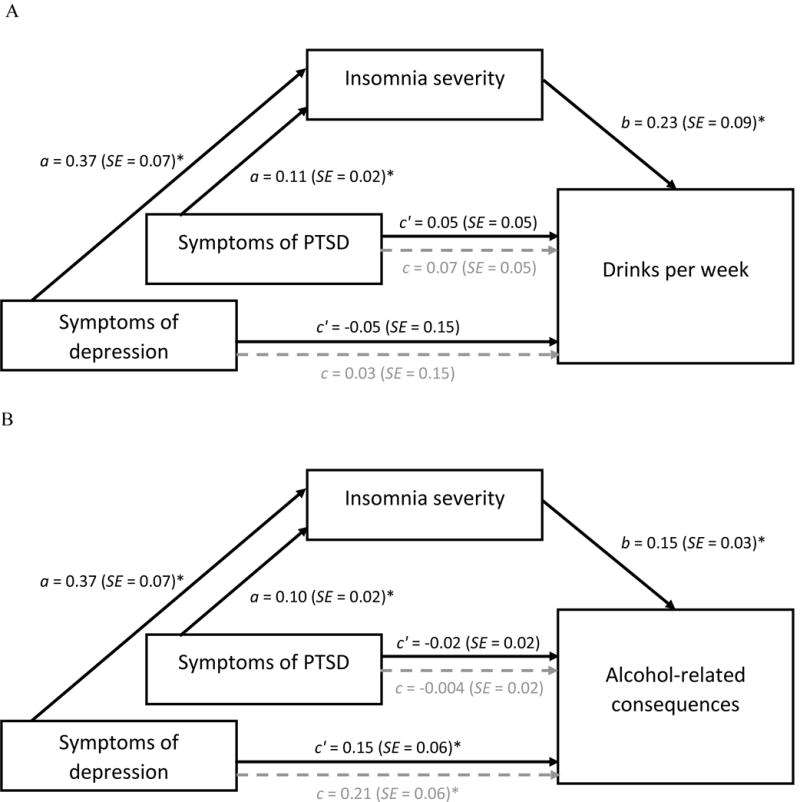Figure 1.

a. Indirect effects of depression/PTSD symptoms on drinks per week.
b. Indirect effects of depression/PTSD symptoms on alcohol-related consequences.
Path coefficients for simple mediation analysis examining insomnia symptoms as a mediator of the association between depression/PTSD symptoms and alcohol-related outcomes. Lighter, dotted lines represent the effect of depression/PTSD symptoms on alcohol outcomes when mediators are not included in the model. All models include intervention condition, gender, age, combat severity, and the opposite mental health diagnosis as covariates (e.g., depressive symptom models include PTSD symptoms as a covariate). The model predicting alcohol-related consequences also controlled for drinks per week at baseline. *p < .05.
